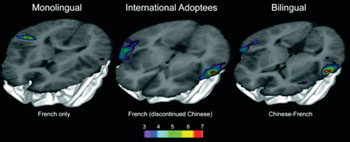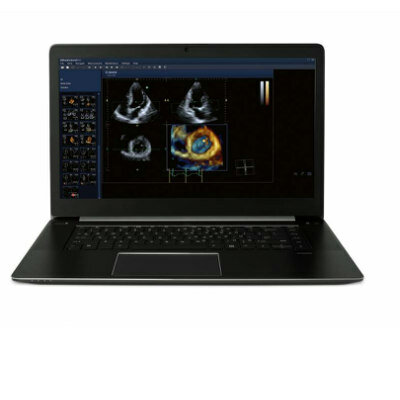fMRI Research Locates “Lost” Languages in the Brain
By MedImaging International staff writers
Posted on 03 Dec 2014
A baby’s mother tongue creates neural patterns that the unconscious fetal brain recollects years later, even if the child completely stops using the language, as can occur in the isntance of international adoption, according to a new joint study. The study offers the first neural evidence that traces of the “lost” language remain in the brain.Posted on 03 Dec 2014
“The infant brain forms representations of language sounds, but we wanted to see whether the brain maintains these representations later in life even if the person is no longer exposed to the language,” said Lara Pierce, a doctoral candidate at McGill University (Montreal, Canada), and first author on the paper. Her research was jointly supervised by Dr. Denise Klein at The Neuro and Dr. Fred Genesee in the department of psychology. The article, “Mapping the unconscious maintenance of a lost first language,” was published in the November 17, 2014, edition of scientific journal Proceedings of the National Academy of Sciences of the United States of America (PNAS).

Image: Finding lost languages in the brain (Photo courtesy of McGill University).
The Neuro conducted and analyzed functional magnetic resonance imaging (fMRI) scans of 48 girls between nine and 17 years old who were recruited from the Montreal area through the department of psychology. One group was born and raised unilingual in a French-speaking family. The second group had Chinese-speaking children adopted as infants who later became unilingual French speaking with no conscious recall of Chinese. The third group was fluently bilingual in Chinese and French.
Scans were captured while the three groups listened to the same Chinese language sounds. “It astounded us that the brain activation pattern of the adopted Chinese who ‘lost’ or totally discontinued the language matched the one for those who continued speaking Chinese since birth. The neural representations supporting this pattern could only have been acquired during the first months of life,” said Ms. Pierce. “This pattern completely differed from the first group of unilingual French speakers.”
The study suggests that early-acquired information is not only maintained in the brain, but unconsciously influences brain processing for years, possibly for life—potentially indicating a special status for data gathered during optimal periods of development. This could counter arguments not only within the field of language acquisition, but across domains, that neural representations are overwritten or lost from the brain over time.
The implications of this new research are far reaching, and create avenues for questions relating both to the re-learning of an early acquired, but forgotten, language or skill, as well as the unconscious influence of early experiences on later developmental outcomes.
Related Links:
McGill University












.jpg)

